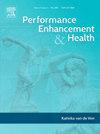Attitudes of anabolic steroid users and non-users towards general practitioners in the United Kingdom
IF 3.7
Q2 HOSPITALITY, LEISURE, SPORT & TOURISM
引用次数: 0
Abstract
Background
Research from past decades has suggested that anabolic-androgenic steroid (AAS) users are often sceptical of their physicians’ level of knowledge regarding AAS. We questioned whether contemporary British AAS users and non-AAS-using weightlifters would display similar distrust of their general practitioners.
Methods
We distributed anonymous questionnaires to 61 AAS-using and 106 non-AAS-using male British weightlifters at gymnasiums and via online social media sites. Respondents rated their general practitioners’ knowledge regarding health- and drug-related topics, using 10-point Likert scales from 0 (worst) to 10 (best). AAS users also rated their degree of trust in various sources of information about AAS, using similar scales, and were asked whether they had disclosed their AAS use to various categories of individuals. We then compared our findings with the results from a 2004 American study that had used virtually identical methodology.
Results
Both AAS-using and non-using weightlifters rated their general practitioners favourably on knowledge of general health and disease, cigarette smoking, and alcohol, with mean scores ranging from 6.8 to 8.7. However, respondents scored their general practitioners significantly lower on knowledge of AAS, with mean ratings of 4.3 to 4.9 from AAS non-users and only 2.4 to 2.9 from users. Among various sources of information about AAS, users trusted their doctors significantly less than “underground” guides or Internet sites. Only 22 (36 %) of the AAS users had ever disclosed their use of these drugs to any physician. These findings closely resembled those of the earlier American study, with contemporary British men reporting even greater mistrust of their physicians on weightlifting- and AAS-related topics than their American counterparts.
Conclusion
Despite increasing AAS use worldwide and mounting evidence of the long-term dangers of these drugs, contemporary British weightlifters in general and AAS users in particular appear to remain distrustful of their physicians’ knowledge of fitness sports, performance-enhancing supplements, and especially AAS.
英国合成类固醇使用者和非使用者对全科医生的态度
背景过去几十年的研究表明,合成代谢雄性类固醇(AAS)使用者通常对医生有关 AAS 的知识水平持怀疑态度。我们的问题是,当代英国的 AAS 使用者和不使用 AAS 的举重运动员是否会对他们的全科医生表现出类似的不信任。方法我们在健身房并通过在线社交媒体网站向 61 名使用 AAS 和 106 名不使用 AAS 的英国男性举重运动员发放了匿名问卷。受访者对其全科医生在健康和药物相关主题方面的知识进行了评分,采用的是 10 分制李克特量表,从 0 分(最差)到 10 分(最佳)不等。此外,AAS 使用者还使用类似的量表来评价他们对有关 AAS 的各种信息来源的信任程度,并被问及他们是否向各类人员透露过自己使用 AAS 的情况。然后,我们将研究结果与 2004 年美国的一项研究结果进行了比较,该研究采用了几乎完全相同的方法。结果使用 AAS 和不使用 AAS 的举重运动员在一般健康和疾病知识、吸烟和酗酒方面对其普通医生的评价都很好,平均分在 6.8 到 8.7 之间。然而,受访者对全科医生有关动情激素知识的评分明显较低,不使用动情激素者的平均评分为 4.3 至 4.9 分,而使用动情激素者的平均评分仅为 2.4 至 2.9 分。在有关安非他明类兴奋剂的各种信息来源中,使用者对医生的信任度明显低于 "地下 "指南或互联网站。只有 22 人(36%)曾向任何医生透露过他们使用过这类药物。这些发现与早前美国的研究结果非常相似,当代英国男性在举重和 AAS 相关话题上对医生的不信任程度甚至高于美国男性。结论尽管 AAS 的使用在全球范围内不断增加,而且越来越多的证据表明这些药物具有长期危害性,但当代英国举重运动员,尤其是 AAS 使用者,似乎仍然不信任医生对健身运动、提高成绩的补充剂,尤其是 AAS 的了解。
本文章由计算机程序翻译,如有差异,请以英文原文为准。
求助全文
约1分钟内获得全文
求助全文
来源期刊

Performance enhancement and health
Social Sciences-Health (social science)
CiteScore
4.70
自引率
0.00%
发文量
27
审稿时长
57 days
 求助内容:
求助内容: 应助结果提醒方式:
应助结果提醒方式:


